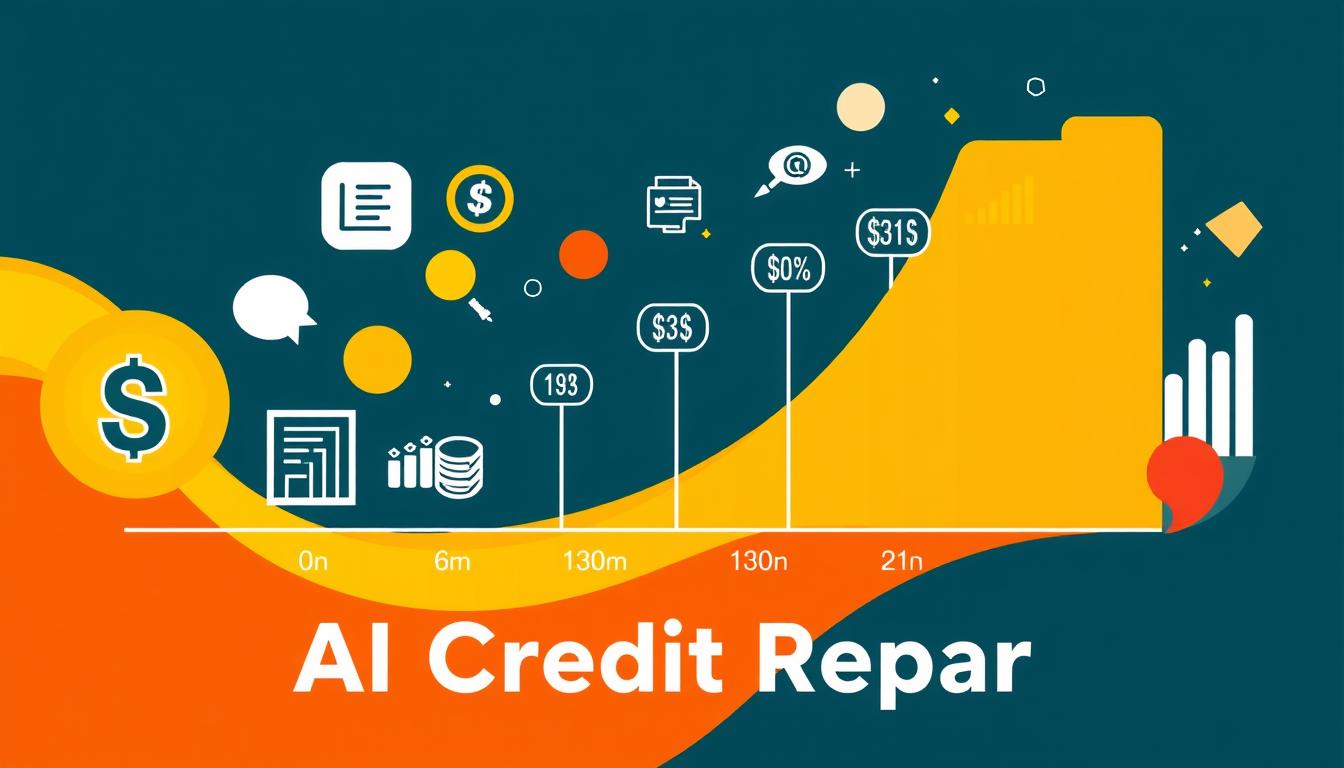A credit score in South Africa shows how trustworthy you are with money. It’s based on your payment history, credit use, and credit types. A low credit score is usually below 600.
This low score can make it hard to get loans or good interest rates. It can also limit other financial chances you might have.
Key Takeaways
- A credit score in South Africa is a numerical representation of an individual’s creditworthiness.
- A low credit score in South Africa is generally considered to be below 600.
- A low credit score can significantly impact an individual’s ability to access credit, obtain favorable interest rates, and secure other financial opportunities.
- Understanding the factors that impact credit scores in South Africa is crucial for building and maintaining a healthy credit profile.
- Actively monitoring and improving one’s credit score is essential for financial well-being in South Africa.
Understanding Credit Scores in South Africa
South African credit bureaus use unique scoring models to assess creditworthiness. Experian, TransUnion, and Compuscan consider various factors in their evaluations. These include payment history, credit use, and length of credit history.
The models also look at types of credit used and any negative information. This comprehensive approach helps lenders make informed decisions about extending credit.
Credit Bureau Scoring Models
Each South African credit bureau has its own scoring model. This can lead to differences in credit scores between bureaus. These models help lenders assess borrowers’ creditworthiness accurately.
Lenders use these scores to decide on extending credit. They also use them to set appropriate interest rates.
Factors Impacting Your Credit Score
- Payment History: Your track record of making timely payments on loans, credit cards, and other financial obligations is a crucial factor in determining your credit score.
- Credit Utilization: The amount of available credit you are using, also known as your credit utilization ratio, is another key component of your credit score.
- Length of Credit History: The longer you have had active credit accounts, the more positively it can impact your credit score.
- Types of Credit Used: Maintaining a diverse mix of credit types, such as credit cards, loans, and mortgages, can contribute to a higher credit score.
- Negative Information: The presence of any derogatory information, such as late payments, defaults, or bankruptcies, can have a significant negative impact on your credit score.
Understanding these factors is key to maintaining a healthy financial profile. It can help you access better credit terms in South Africa.
Staying informed about credit scoring models is crucial. It helps you build a strong credit profile. Taking proactive steps can improve your financial standing in South Africa.
What Constitutes a Low Credit Score?
In South Africa, a credit score below 600 is typically considered low. Scores between 500 and 600 are “Poor,” indicating high risk for lenders. Scores under 500 are “Very Poor,” making credit access difficult.
The credit score range south africa greatly impacts financial opportunities. A score above 600 is ideal for better loans, credit cards, and mortgages. It also helps secure favorable interest rates and terms.
Understanding the credit score definition south africa is crucial for managing your finances. Knowing the low credit score south africa thresholds helps you improve your creditworthiness. This knowledge enables access to necessary financial products and services.
“A low credit score can severely limit your financial options, so it’s crucial to understand what factors contribute to a healthy credit profile in South Africa.”

A strong credit score south africa is key to financial well-being. Stay informed about credit score ranges and what’s considered low. This knowledge helps you make smart decisions and improve your credit standing over time.
Consequences of a Low Credit Score
A low credit score in South Africa can cause major problems. It may be hard to get loans, credit cards, or rent homes. Lenders might see you as risky and offer higher interest rates.
Loan and Credit Card Approval Challenges
Low credit scores can block loan or credit card approvals. Lenders use these scores to decide on applications and interest rates. People with low credit scores in South Africa often face rejections or unfair terms.
They may only get credit with high rates or low limits. This makes it harder to manage finances and reach goals.
Higher Interest Rates and Fees
A low credit score in South Africa often leads to higher interest rates and fees. Lenders see these borrowers as risky and charge more to cover potential losses.
This results in bigger monthly payments and more debt over time. It can make reaching financial goals much harder.
| Consequence | Impact |
|---|---|
| Loan and Credit Card Approval Challenges | Difficulty obtaining loans, credit cards, or securing rental properties due to being perceived as high-risk by lenders. |
| Higher Interest Rates and Fees | Lenders may charge higher interest rates and fees to compensate for the perceived risk, leading to higher monthly payments and the accumulation of more debt over time. |
Knowing the consequences of a low credit score in South Africa can motivate improvement. It’s key to achieving long-term financial stability.
Rebuilding Your Credit Score
Rebuilding a low credit score in South Africa takes strategic steps and persistent effort. It requires a comprehensive approach to see real improvement. The key is adopting effective strategies and staying committed to the process.
Start by closely monitoring your credit report. Look for errors or inaccuracies and dispute them promptly. This ensures your credit history is accurate, setting the stage for improvement.
- Make all payments on time. Consistent on-time payments are crucial for a healthy credit score. Create a system to manage your bills and avoid late payments.
- Keep credit card balances low. Aim for credit utilization below 30% of your limit. This shows lenders you manage credit responsibly.
- Add positive credit history. Open new accounts carefully and use them wisely. This builds a diverse credit mix and shows good management skills.
With discipline and patience, you can gradually improve your credit score south africa. This opens doors to better financial opportunities. Remember, rebuilding credit takes time, but the benefits are worth it.
“Rebuilding credit is a marathon, not a sprint. Consistency and patience are key to seeing long-term improvements.”

Payment History: The Key to Credit Repair
Your payment history greatly impacts your credit score in South Africa. Staying current on bills and loan payments is vital for a healthy credit profile. Addressing delinquent accounts should be your top priority.
Staying Current on Payments
On-time payments are crucial for improving your credit score. This includes utility bills, credit cards, and loan payments. Consistent payments show lenders you’re a responsible borrower.
This positive behavior can boost your payment history credit score south africa. It’s a simple yet effective way to maintain good financial standing.
Addressing Delinquent Accounts
Take action if you’ve fallen behind on payments. Negotiate with creditors to set up a payment plan or settlement agreement. Bringing delinquent accounts south africa current can significantly improve your credit score.
Consistent on-time payments are key to paying bills on time south africa. Stay diligent and address payment issues promptly. This approach will help you take control of your financial future.
Credit Utilization: Keeping Balances Low
Credit utilization ratio is vital for credit scores in South Africa. It shows how much credit you use compared to what’s available. Keeping this ratio below 30% can boost your creditworthiness.
Managing credit card balances is crucial for improving credit scores. Low balances show responsible financial handling. This practice is highly valued by lenders and credit scoring models.
A low credit utilization ratio tells lenders you’re not overextended. It shows you can manage credit obligations well. This can lead to better loan approvals and lower interest rates.
| Credit Utilization Ratio | Impact on Credit Score |
|---|---|
| Below 30% | Positive impact on credit score |
| Above 30% | Negative impact on credit score |
Maintaining low credit card balances improves your overall credit profile. It increases your chances of getting better credit terms. South Africans can benefit greatly from this simple yet effective strategy.
Monitoring Your Credit Report
Regularly checking your credit report is vital for a good credit score in South Africa. It helps you spot errors that might hurt your creditworthiness. Checking your credit report often lets you fix problems quickly.
Disputing Errors and Inaccuracies
South African consumers can challenge mistakes on their credit reports. If you find errors in your credit report, you can start a dispute with credit bureaus.
This process can remove negative items and boost your credit profile. It covers wrong account info, fraud, and outdated data.
- Review your credit report thoroughly for any errors or inaccuracies.
- Gather supporting documentation to substantiate your dispute.
- Contact the credit bureaus directly to initiate the dispute process.
- Monitor the progress of your dispute and follow up if necessary.
Monitoring your credit report helps you maintain a strong credit score. It also opens doors to better financial chances in South Africa.
“Regularly reviewing your credit report is the best way to catch and correct any errors or inaccuracies that could be dragging down your credit score.”
What Constitutes a Low Credit Score in South Africa?
Your credit score plays a vital role in personal finance. In South Africa, scores below 600 are typically considered low. Scores between 500-600 are “Poor,” indicating high risk for lenders.
Scores under 500 are “Very Poor.” These make getting credit or good terms extremely difficult. The credit score definition south africa evaluates creditworthiness based on borrowing and repayment history.
A credit score range south africa above 600 is ideal. It offers better financial opportunities and lower interest rates. It also improves chances for loan or credit card approval.
“A low credit score can have far-reaching consequences, limiting your financial options and potentially costing you more in the long run.”
A low credit score south africa creates significant hurdles. It can make securing loans or credit cards challenging. It may also affect rental agreements and utility services.
Understanding what lowers your score is crucial. Taking steps to improve your financial standing is equally important.

Stay informed about your financial habits. Work towards building a better credit score. A healthy score opens doors to improved financial opportunities.
Remember, your credit score reflects your financial responsibility. It can significantly impact your overall financial well-being.
Professional Credit Repair Services
Professional credit repair services can help South Africans improve their credit scores. These services identify errors on credit reports and work with creditors. They also create plans to rebuild creditworthiness.
It’s crucial to research reputable credit repair companies in South Africa. Understanding their fees and services is important. A reliable professional credit help provider can transform your financial future.
- Identify and Dispute Credit Report Errors: Professional credit repair services can thoroughly review your credit report, pinpoint any inaccuracies, and initiate the dispute process with credit bureaus on your behalf.
- Negotiate with Creditors: Experienced credit repair experts can communicate with your creditors to negotiate payment plans, reduce interest rates, and remove negative items from your credit history.
- Develop a Personalized Improvement Plan: A good credit repair service will work closely with you to create a customized strategy for rebuilding your credit, taking into account your unique financial situation and goals.
| Service | Description |
|---|---|
| Credit Report Analysis | Comprehensive review of your credit report to identify errors and areas for improvement. |
| Dispute Resolution | Effective communication with credit bureaus to dispute and remove inaccurate information. |
| Creditor Negotiation | Skilled negotiations with creditors to lower interest rates, remove late payments, and restructure debt. |
| Credit Monitoring | Ongoing monitoring of your credit report and proactive alerts to address any new issues. |
A reputable credit repair service in South Africa offers expert guidance. They help improve credit profiles strategically. This approach can lead to better financial outcomes.
“A good credit repair service can be the key to unlocking a brighter financial future.”
Patience and Perseverance
Rebuilding a low credit score in South Africa takes time and effort. It may take months or years to see big changes. Making on-time payments and keeping credit utilization low are key to boosting your credit score.
The credit score improvement timeline in South Africa varies for each person. Your financial situation and actions affect how fast your score improves. Remember, credit score rebuilding is a marathon, not a sprint.
To improve your credit score in South Africa, you need a long-term plan. Stay committed to good money habits. You might need to cut spending or focus on paying off debt.
“Patience and perseverance have a magical effect before which difficulties disappear and obstacles vanish.” – John Quincy Adams
Keep a positive attitude as you work on your credit score in South Africa. Stay focused on your goals. Credit score rebuilding is a steady climb towards better finances.

Establishing New Credit Responsibly
Building new credit responsibly can boost creditworthiness for South Africans with low credit scores. This involves opening a credit card or getting a small loan. Making timely payments and keeping low balances can create a positive credit history.
Approach new credit with caution. Apply only when necessary and avoid excessive applications. Be mindful of your credit utilization – the ratio of balances to credit limits.
- Start with a secured credit card. These require a refundable security deposit, which becomes your credit limit. On-time payments help build a positive credit history.
- Consider a credit-builder loan. These small, short-term loans help establish a positive credit history through regular payments.
- Become an authorized user on someone else’s card. A friend or family member’s good credit history can boost your credit report.
Use new credit wisely to rebuild your credit score in South Africa. Stay within limits and make timely payments. This can increase your creditworthiness and open doors to better lending opportunities.
“Establishing new credit responsibly is a crucial step in rebuilding your financial foundation in South Africa.”
Conclusion
A low credit score in South Africa, typically below 600, can cause significant financial challenges. It may hinder loan approvals, credit card applications, and even rental agreements. Higher interest rates and fees are also common consequences.
Rebuilding credit requires a strategic approach. Focus on improving payment history, managing credit utilization, and monitoring credit reports. Establishing new credit responsibly is also crucial.
With patience and discipline, South Africans can boost their credit scores. This improvement opens doors to better financial opportunities. Understanding credit score factors is key to maintaining a strong profile.
By following these strategies, consumers can take charge of their financial future. A good credit score reflects financial responsibility and creditworthiness. It’s more than just a number—it’s a path to financial stability and growth.

